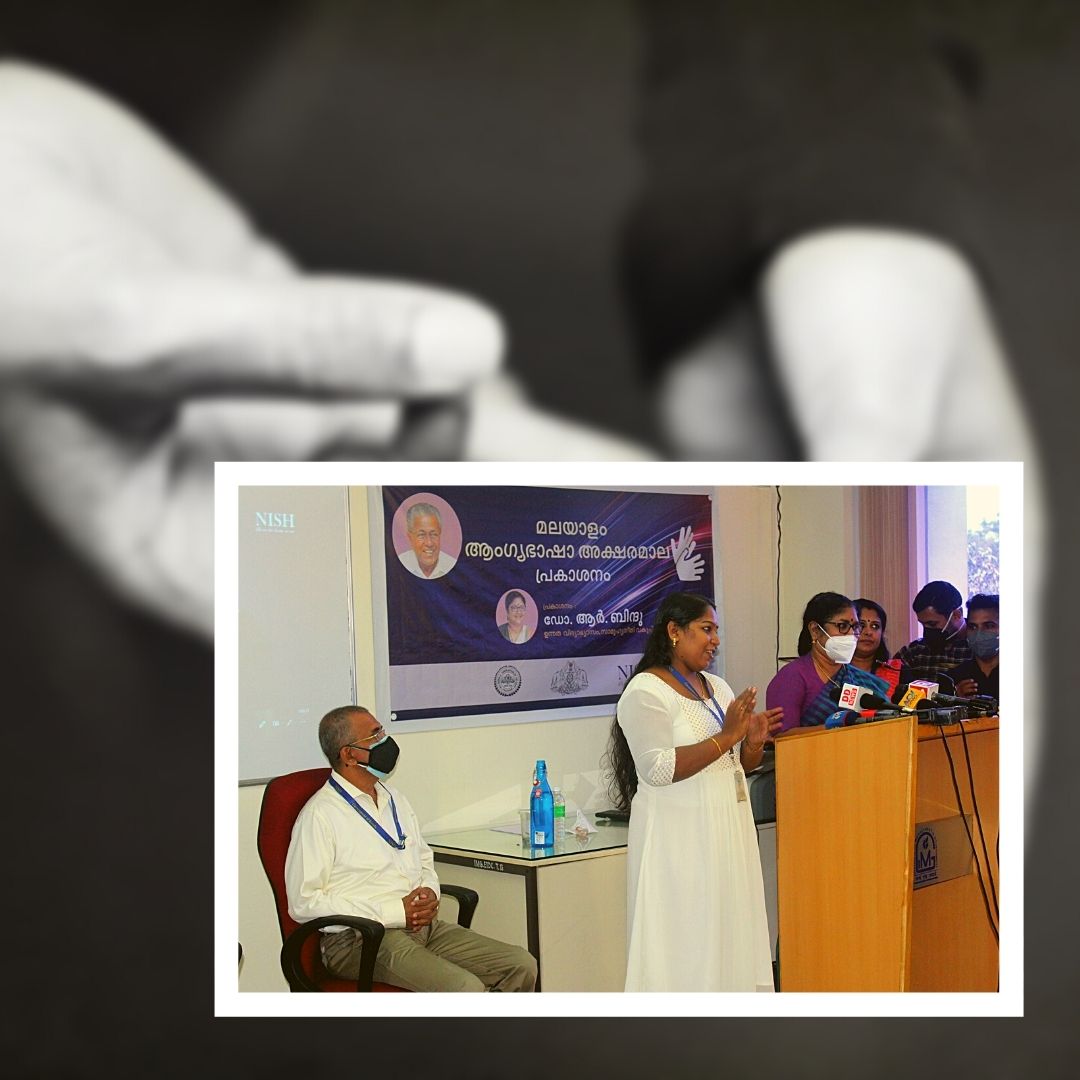
Image Credits: Pixabay, Twitter/NISH
Malayalam Alphabet In Sign Language To Change Life Of Hearing-Impaired: Kerala Minister R Bindu
Writer: Shweta Routh
Shweta Routh 2nd year student of School of Mass Communication, KIIT University. Versed with 3 languages, secured 1st position in all over district, Hindustan Commerce Olympiad and also won the title of student of the year during her school time. She loves to make new friends and explore new things and is a strong believer of Karma.
Kerala, 1 Oct 2021 3:55 AM GMT
Editor : Palak Agrawal |
Palak a journalism graduate believes in simplifying the complicated and writing about the extraordinary lives of ordinary people. She calls herself a " hodophile" or in layman words- a person who loves to travel.
Creatives : Palak Agrawal
Palak a journalism graduate believes in simplifying the complicated and writing about the extraordinary lives of ordinary people. She calls herself a " hodophile" or in layman words- a person who loves to travel.
In sign language, the Malayalam alphabet, which consists of vowels and consonants, is finger-spelt and would prevent miscommunication and make it easier for teachers to convey messages.
Kerala Higher Education Minister Dr R Bindu on Wednesday, September 29, unveiled the first uniform sign language alphabet in Malayalam, claiming that it would completely transform the lives of hearing-impaired people.
The minister promised to look into the use of the alphabet in special schools developed by the National Institute of Speech and Hearing (NISH) in collaboration with the All Kerala Association of the Deaf.
Sign Language In Malayalam
The Malayalam alphabet, which consists of vowels and consonants, is finger-spelt in sign language. Its primary phase was explicitly created for hearing-impaired schools across the state.
The alphabet would prevent miscommunication and make it easier for teachers to transmit messages. It also makes it easier for a Malayalam speaker to empathise with hearing-impaired people.
Discussions will begin with the General Education Department regarding the use of the Malayalam alphabet in sign language in special schools across the state. Currently, sign language alphabets exist for English and Hindi. The newly developed Malayalam alphabet will open up enormous possibilities for the hearing impaired community, said the minister, referring to the alphabet as a "proud achievement" reported by The Hindu.
It is the result of NISH's dedicated effort, which took into account the difficulties of the hearing-impaired, who communicate through gestures with their hands in the air, she added.
The Minister also honoured sign language experts— NISH hearing impaired teachers Arun Gopal, Sandeep Krishnan, Sarun Simon, and Shinju Soman; Ragi Raveendran, a NISH alumnus of the Early Intervention Department; and Romi, secretary of the All Kerala Deaf Association.
"Like other global languages, sign language is an independent language. With the advent of the Malayalam alphabet in sign language, the hearing-impaired will be able to read and write Malayalam," said K G Satheesh Kumar, Director, Centre for Assistive Technology and Innovation, NISH, as reported by The New Indian Express.
Importance Of Sign Language
Communicating With Gestures
Sign languages include the movement of a person's arms, torso, and facial emotions in addition to their hands. Many deaf and hard-of-hearing people rely heavily on sign languages as a means of communication. Although deaf individuals predominantly use sign languages, they are also utilised by non-deaf people who can hear but cannot speak.
Helpful For People With Autism Spectrum Disorder
Some kids with Autism Spectrum Disorder (ASD) have difficulty communicating verbally. For some children with ASD, learning sign language can be a helpful communication tool. Many children with ASD have shown that utilizing sign language instead of or in addition to spoken language improves communication quality.
Sign Language, Spoken Language: Learning Remains Same
The phases of learning a sign language for a child are the same as learning a spoken language. If a baby's first language is sign language, they will frequently begin to "babble" with their hands rather than their mouth. Because the muscles in a baby's hands develop faster than those in their mouths, signing can be a preferable option for early communication, especially if the youngster cannot speak.
Improve Listening Power
People who are familiar with sign language are frequently better listeners. A person must maintain consistent eye contact with the person who is speaking when using sign language. Unlike spoken languages, sign languages do not allow a person to turn aside from speaking while still listening. This can be a beneficial habit to develop for both spoken and sign language.
 All section
All section













